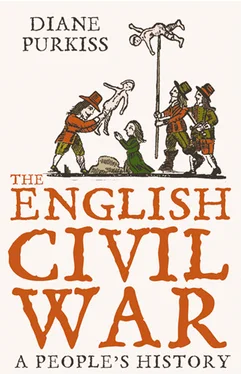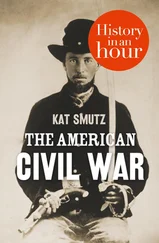A People’s History
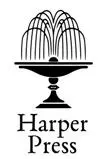
Cover Page
Title Page The English Civil War A People’s History
Maps Maps
An Epistle to the Gentle Reader
I The Last Cavalier?
II The Meek-Eyed Peace
III Two Women: Anna Trapnel and Lucy Hay
IV The Bishops’ Wars, the Three Kingdoms, and Montrose
V Pym against the Papists
VI Stand Up, Shout Mars
VII The Valley of Decision
VIII Bright-Harnessed Angels: Edgehill
IX Down with Bishops and Bells: Iconoclasm
X The Death of Dreams
XI The War over Christmas
XII The Queen’s Tale: Henrietta Maria
XIII Newbury Fight
XIV Two Capitals: Oxford and London
XV The Bitterness of War
XVI Two Marriages
XVII The Power of Heaven: Marston Moor and Cromwell
XVIII The Cookery Writers’ Tales: General Hunger, Hannah Wolley, Kenelm Digby and the Deer of Corse Lawn
XIX Twenty Thousand Cornish Boys: The Battle of Lostwithiel
XX The Nation’s Nightmares
XXI Th’ Easy Earth That Covers Her: The Children’s Tales
XXII God with Us! Montrose’s Campaign
XXIII New Professions: Parliament Joan and Richard Wiseman
XXIV The World is Turned Upside Down: The New Model Army and Naseby Fight
XXV Ashes: The Siege of Taunton and the Clubmen
XXVI The Birds in the Greenwoods are Mated Together: Anne Halkett and the Escape of James II
XXVII Nor Iron Bars a Cage: The Capture of Charles I
XXVIII A New Heaven and a New Earth: Anna Trapnel and the Levellers
XXIX Stand Up Now, Stand Up Now: Gerrard Winstanley and the Diggers
XXX The Second Civil War
XXXI To Carisbrooke’s Narrow Case: Charles I in Captivity
XXXII Oh, He is Gone, and Now hath Left Us Here: The Trial and Execution of Charles I
XXXIII Into Another Mould? The Aftermath
FURTHER READING
INDEX
P.S. Ideas, interviews & features…
Interview
About the Book
Read on
Acknowledgements
About the Author
Praise
By the Same Author
Copyright
About the Publisher
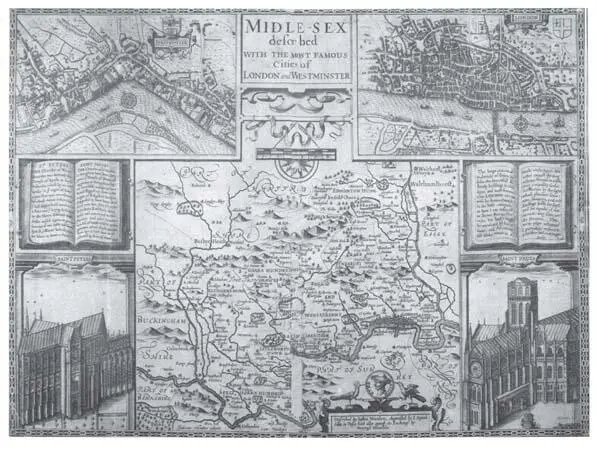
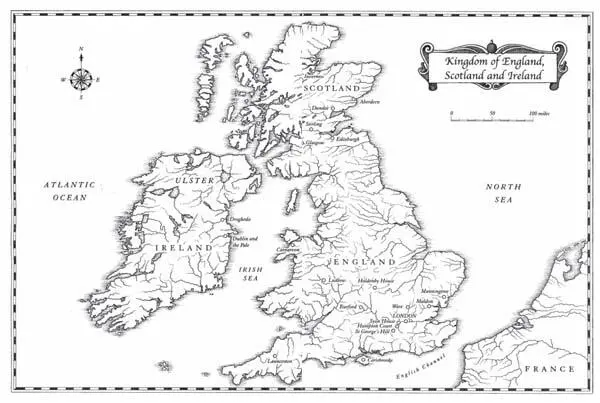
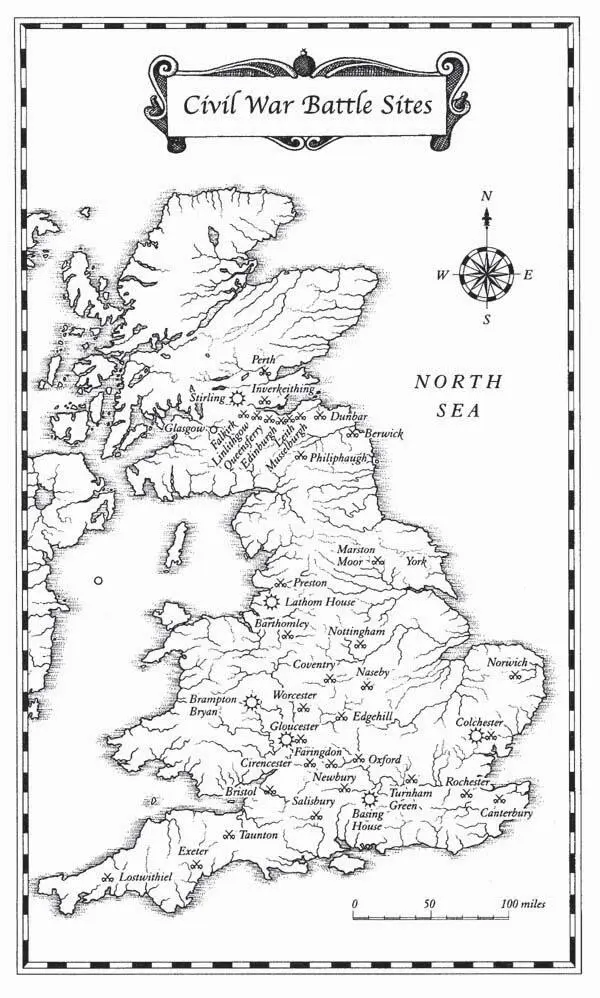
An Epistle to the Gentle Reader
If this were truly a seventeenth-century book or pamphlet, it would be likely to include an epistle to you, the reader. In the seventeenth century, with which this book is concerned, authors and readers approached each other more formally and courteously than is now customary. A book usually began with a polite letter to the gentle reader, a letter which asked for the reader’s attention, apologized for the book’s shortcomings, and explained what benefits patient perusal of the work might offer. The tone was often self-deprecating, and it was usual to deprecate the book itself as ‘my poor book’. The poet Robert Herrick thought his book was likely to be used as toilet paper when his readers were tired of it; Milton repeatedly asked God to fix his awful weaknesses. In addressing the reader as ‘gentle’, the author invited him or her to be so; to be courteous and polite in turn. Gentle also has a class meaning; it implies wealth, and with it education, power and discernment.
I hope it is not too self-conscious for me to emulate this charming tradition and thus to offer a tribute to it. In reviving a good custom and addressing you, gentle reader, my chief purpose is to welcome you to a story that greatly concerns you.
Frankly, I am in hopes that you may be among those to whom the words ‘The English Civil War’ have always stood for an unsolved mystery. The Civil War is perhaps the single most important event in our history, but for rather complex reasons many of the very intelligent readers who abound in these isles know little of it. The great battlefield sites of Edgehill, Marston Moor, and Naseby are difficult to find and poorly marked. The siege sites of Basing House and Donnington Castle are ruins dotted with picnickers rather than sacred memorials to heroic endeavour and ideas. We have no Fourth of July, no Bastille Day to commemorate our own heroic struggle to define and enact freedom, even though on it depended the ideas that were later to lead to those two other revolutions. Self-deprecation can go too far, and as a nation we are perhaps too good at it, so good that it becomes a species of forgetting.
So it is that in these pages I would like to introduce you – gently – to the war and the men and women who fought in it. In this book I invite you with all respect to make the acquaintance of what we call The Civil War – the series of battles and campaigns fought on the field and also in people’s hearts and minds between 1642 and 1649, culminating in the judicial execution of a king and the creation of the only English Republic to date.
You, dear courteous reader, will come to know more anon. You will not come to know everything worth knowing from my poor book alone, but it may make you feel well enough acquainted with its subject to pursue the men and women it sketches through other books, to see them in the streets of your own town or city.
To some of you I should not presume ot offer such an introduction. For some of you, the civil war is an old friend, and I welcome you too to these pages. Among your number are doubtless the formidable amateur experts who also dot our landscape; those who know far more than I about the siege of Gloucester or the range of a demiculverin, those who could draw an accurate sketch of the battle lines at Newbury, those who have an especial hero among the fighting men and women whose stories burst from the pages of history – Fairfax, Cromwell, Charles I. I bow to you and apologize in advance for any errors you may discern. But I also beg you not merely to indulge your passion, but to make the acquaintance of persons whose stories you may not have considered important, especially the stories of noncombatants, the stories of those for whom war was not battle but privation or writing or ideas.
Finally, I address you, discerning and erudite readers, academic historians, colleagues. Not all of you will agree with what I have done here. So it must be, for I hope we might at least unite in stating that no history of this war has ever commanded universal acclamation. It may be that some of you may think, for instance, that cookery writers should not elbow parliamentary debates aside as they do here, for the reason that the latter have more serious influence on the lives of ordinary men and women. But do they? The democratization of simple knowledge is part of the political story of these years. And unlike the form of government, this reform is lasting. Bear with me, tolerate me, and you may find some profit in it.
I also want to say this to you, as an apology for my poor naked book; once upon a time, our courteous readers enjoyed academic history because it was grounded, as was the novel, in a drama of character. Macaulay and Carlyle were read and loved because their version of history was a guide to human nature. For complex and very good reasons, their approach has been largely abandoned by professional historians; indeed, for many a focus on individual character in history is now an irredeemable sign of the amateur. In all my work I am trying to seduce the academy into taking this human approach back, reviving it, and thus giving its revived force to the subjects of our ruminations. If the past is not to be dry, then it must live, and so must its people. I hope I may be forgiven much that is faulty or imperfect for my attempt to return to a moment when history was a vital part of the nation’s idea of who and what human beings are.
Читать дальше
